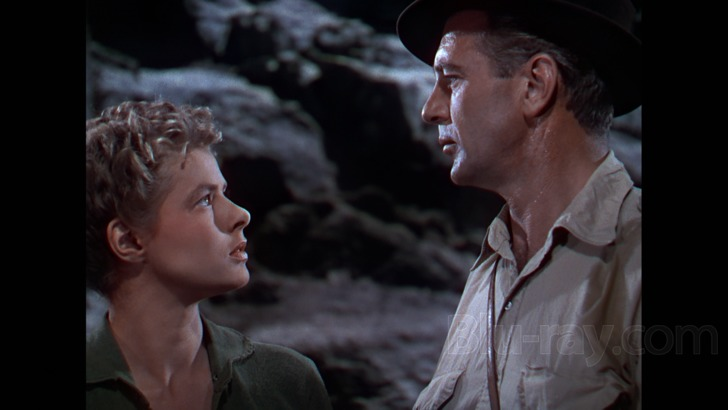This Thinking Activity on For Whom the Bell Tolls task was assigned by Yesha Bhatt Ma'am Department of English MKBU. In this task, we have to write down the Answer to Anyone one question in the Novel.
For Whom the Bell Tolls
Introduction of Author:
Earnest Hemingway
“I loved you when I saw you today and I loved you always but I never saw you before.”― Ernest Hemingway, For Whom the Bell Tolls
Ernest Hemingway was an American writer and journalist who was born on July 21, 1899, in Oak Park, Illinois. He is known for his novels and short stories, which are characterized by their simplicity, clarity, and economy of language. Hemingway served as an ambulance driver in World War I, and his war experiences profoundly impacted his writing. He was awarded the Nobel Prize in Literature in 1954.
Hemingway's writing career began as a journalist, and he worked for various newspapers and magazines before becoming a full-time writer. Some of his best-known works include "The Old Man and the Sea," "For Whom the Bell Tolls," "A Farewell to Arms," and "The Sun Also Rises." These works are known for their themes of love, loss, and adventure, and they often take place in exotic locations around the world.
Hemingway was also an avid outdoorsman, and he often wrote about his adventures in nature. He lived a colorful and adventurous life, and his writing reflects this. Many of his works have been adapted into films, and he is considered one of the most influential writers of the 20th century.
Introduction of Novel:
"For Whom the Bell Tolls" is a novel by American writer Ernest Hemingway, published in 1940. It is set during the Spanish Civil War and tells the story of Robert Jordan, an American volunteer fighting for the Republicans against the Nationalists. Jordan is sent on a mission to blow up a bridge behind enemy lines and becomes involved with a group of Spanish Republicans, including a young woman named Maria. The novel explores themes of love, death, and the meaning of life, as well as the effects of war on individuals and society.
Hemingway's writing style in "For Whom the Bell Tolls" is characterized by its simplicity and directness, as well as its use of dialogue to convey character and advance the plot. The novel was well-received upon its publication and has since become one of Hemingway's most popular and enduring works. It was adapted into a film in 1943, starring Gary Cooper and Ingrid Bergman.
Publication Year: 1940
Genre: Novel
Characters: Robert Jordan, Pablo, Pilar, Maria, Anselmo, Agustin, Fernando, Primitivo
Setting: Segovia, Spain
In what basic way is Robert Jordan a typical Hemingway hero?
Ernest Hemingway is known for his tough, stoic characters who often face difficult challenges and circumstances with courage and determination. These characters often referred to as "Hemingway heroes," are typically male and are often soldiers, hunters, or adventurers. They are defined by their strong sense of personal code and their ability to endure physical and emotional hardship. They also have their own brand of uniqueness in their characterization. They are not less than Shakespeare's heroes in their unique traits of heroism.
Here are good Examples of his Heroes...
Santiago in The Old man and the Sea, Romero in The Sun Also Rises, and Jordan in For Whom the Bell Tolls, Frederic Henry in A Farewell to Arms can be best quoted in this regard.
In For Whom the Bell Tolls, we see that Robert Jordan plays a role of such a character who fights for an ideal in a foreign land. He has a firm belief in the Republican cause because he loves Spain. This novel has been written in order to test the quality of Jordan’s idealism and the chain of obstacles in his path forms the basic structure of the novel. As the action of the novel proceeds, Jordan’s task gets more and more complicated. Pablo is absolutely against Jordan’s plan. He takes it impossible to put into practice because it means the destruction of the land. Hemingway’s heroes are always brave in their acts. Jordan is brave enough that he even does not feel fear in his great risky task of blowing up the bridge.
The book tells the story of Robert Jordan, an American who hides out in caves during the Spanish Civil War and wages guerrilla war against the fascists. Jordan is also a complex and nuanced character. He is not a perfect hero, and he struggles with personal doubts and feelings of guilt. He ultimately remains true to his beliefs and is willing to make great sacrifices for the greater good. Jordan is such a character who does not give any importance to what happens to him. He accepts the risky task of blowing up the bridge with an open heart and never shows any sign of cowardice.
Some critics raise objections by saying that sometimes, Jordan appears like a dummy but Hemingway makes him a convincing and imitable personality through his superb art of characterization. So, their objection does not remain for a long time when we see that it is Jordan who fights against many abstractions: liberty, equality, rights of the people, democracy, and atrocities of the fascists. In fact, he is religiously jealous and fights for a secular ideal. A prominent critic has very rightly said, “He dies for the American dream”. He sacrifices for all the poor people in the world. There is no doubt in saying the fact that his ideals are worth imitating for the people of the rest of the world. He fights for those ideals which are practicable for most sensible persons.
He has a lot of weak points like ordinary and commonplace human beings. He is an American volunteer who fights for the genuine cause of humanity and feels this crusade in his blood and soul. Being dutiful, he loves Spain. He remained there when the civil war broke up. He joined the war in order to contribute his service to the welfare of the country. He loves Spanish people and learns their language in order to teach this language to them as an instructor in Spanish at a small college in America.
One of the best traits of his personality is that he is not: an ordinary hero like other heroes of Hemingway but a complicated one. His complicated nature of psychological vacuum is filled by the dream-like love of Maria. He is not a coward like his father who committed suicide. That’s why he idealizes his grandfather more than his own father.
In the above-mentioned discussion of the characteristics of Jordan as a tragic hero, we can say in the concluding remarks that in the end; his loyalty becomes personal loyalty and he is just a husband covering the retreat of his wife whom he loves by the core of his heart. He sacrifices his life for Maria and her people i.e., Pablo and his land. He is justified in his act of sacrifice because his idealism is worth imitating and practicable for many others.
At the end of For Whom the Bell Tolls, Jordan is in a forest, looking down at the bridge he was sent to destroy. His leg is broken and he tells his young lover, Maria, that she must go on without him. And then, alone, lying there on the pine needles, he faces his death.
"He knows that life is good and it will be a very bad thing to lose his life. But he's very stoic about it, as Hemingway characters always are," says Stone. Toward the end of the book, Jordan faces his demise with a powerful reflection that McCain has quoted before: "The world is a fine place and worth the fighting for and I hate very much to leave it."
"I have fought for what I believe in for a year now. If we win here we will win everywhere. The world is a fine place and worth the fighting for and I hate very much to leave it." - Robert Jordan
Thank you for Visiting…
[Word Count- 1350]








No comments:
Post a Comment